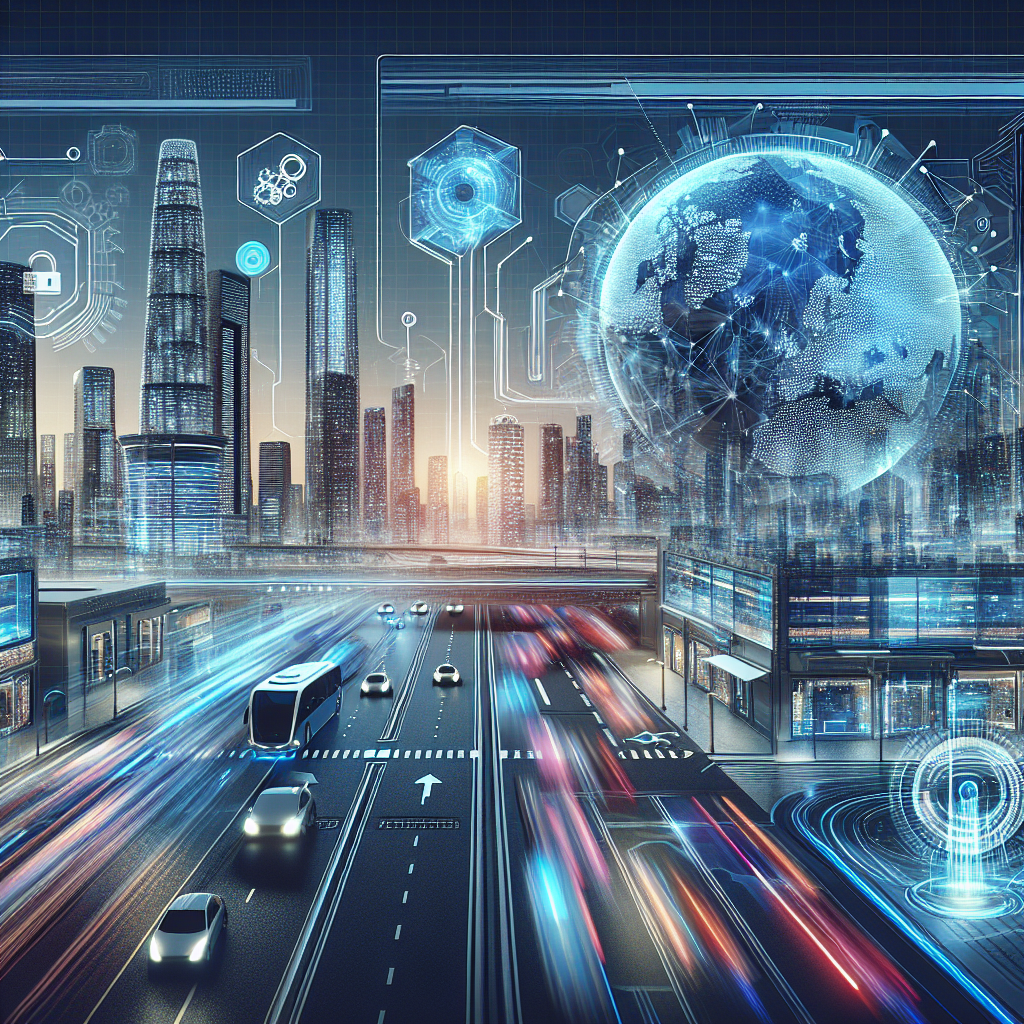From Sci-Fi to Reality: How AGI is Transforming the World
Artificial General Intelligence (AGI) is a term that has been thrown around in science fiction for decades. It conjures images of sentient robots, self-aware computers, and dystopian futures where humanity is either enslaved or obsolete. However, in recent years, AGI has become less of a distant dream and more of a present reality. With advancements in machine learning, neural networks, and deep learning algorithms, AGI is no longer confined to the realm of science fiction. It is shaping the world we live in today and will continue to transform it in the future.
What is AGI?
AGI refers to a type of artificial intelligence that possesses the ability to understand, learn, and apply knowledge across a wide range of tasks. Unlike narrow AI, which is designed to perform specific tasks or solve particular problems, AGI is more akin to human intelligence in its flexibility and adaptability. AGI systems can reason, learn from experience, and make decisions in novel situations without being explicitly programmed to do so.
The development of AGI has been a long-standing goal of artificial intelligence research. While narrow AI has made significant strides in recent years, AGI remains an elusive and challenging target. Achieving true AGI requires not only advances in machine learning and neural network technologies but also a deep understanding of human cognition and intelligence.
How is AGI Transforming the World?
The impact of AGI on the world is already being felt across a variety of industries and sectors. From healthcare to finance, transportation to entertainment, AGI is revolutionizing the way we work, live, and interact with technology. Here are some ways in which AGI is transforming the world:
1. Healthcare: AGI is being used to analyze medical images, diagnose diseases, and develop personalized treatment plans for patients. By leveraging the power of deep learning algorithms, AGI systems can identify patterns and anomalies in medical data that may not be apparent to human doctors. This has the potential to improve patient outcomes, reduce healthcare costs, and revolutionize the practice of medicine.
2. Finance: In the financial sector, AGI is being used to predict market trends, optimize investment portfolios, and detect fraudulent transactions. By analyzing vast amounts of financial data in real-time, AGI systems can identify patterns and correlations that human analysts may overlook. This can help financial institutions make better-informed decisions and mitigate risks in a volatile market.
3. Transportation: AGI is also transforming the way we move from place to place. Self-driving cars, drones, and other autonomous vehicles are powered by AGI algorithms that enable them to navigate complex environments, avoid obstacles, and make split-second decisions. As AGI technology advances, we can expect to see more autonomous vehicles on the road, leading to safer, more efficient transportation systems.
4. Entertainment: AGI is revolutionizing the entertainment industry by creating immersive virtual worlds, personalized content recommendations, and lifelike digital characters. AI-powered algorithms can analyze user preferences, behavior, and feedback to deliver tailored experiences that resonate with audiences. From video games to streaming platforms, AGI is enhancing the way we consume and interact with entertainment content.
5. Education: AGI has the potential to transform the way we learn and acquire knowledge. By personalizing educational experiences, adaptive learning systems powered by AGI can cater to the individual needs and learning styles of students. These systems can provide real-time feedback, track progress, and adapt the curriculum to suit the pace and abilities of each learner. This can lead to more effective and engaging educational experiences for students of all ages.
FAQs
1. What is the difference between AGI and narrow AI?
AGI refers to artificial intelligence that possesses the ability to understand, learn, and apply knowledge across a wide range of tasks, similar to human intelligence. Narrow AI, on the other hand, is designed to perform specific tasks or solve particular problems, such as speech recognition or image classification. While narrow AI excels at its designated tasks, AGI is more flexible and adaptable in its capabilities.
2. How close are we to achieving AGI?
While significant progress has been made in the field of artificial intelligence, achieving true AGI remains a challenging and long-term goal. Researchers continue to work on developing advanced machine learning algorithms, neural networks, and cognitive architectures that can replicate the complexity and flexibility of human intelligence. While some experts predict that AGI could be achieved within the next few decades, others believe that it may take much longer to achieve true artificial general intelligence.
3. What are the ethical implications of AGI?
As AGI technology advances, there are growing concerns about the ethical implications of creating intelligent machines that rival or surpass human intelligence. Issues such as job displacement, algorithmic bias, privacy violations, and autonomous decision-making raise important ethical questions that need to be addressed. It is essential for researchers, policymakers, and industry stakeholders to collaborate on developing ethical guidelines and regulations that ensure the responsible and ethical use of AGI technology.
4. How can AGI benefit society?
AGI has the potential to revolutionize various industries and sectors, leading to improved healthcare outcomes, more efficient transportation systems, personalized educational experiences, and enhanced entertainment content. By harnessing the power of artificial general intelligence, we can solve complex problems, optimize decision-making processes, and unlock new opportunities for innovation and growth. AGI has the potential to benefit society by improving quality of life, driving economic prosperity, and advancing scientific knowledge.
In conclusion, AGI is no longer just a concept from science fiction. It is a reality that is transforming the world in profound ways. From healthcare to finance, transportation to entertainment, AGI is reshaping the way we work, live, and interact with technology. As we continue to push the boundaries of artificial intelligence research, we must also consider the ethical implications and societal impact of AGI technology. By working together to harness the potential of AGI for the greater good, we can create a future where intelligent machines coexist harmoniously with humanity.

